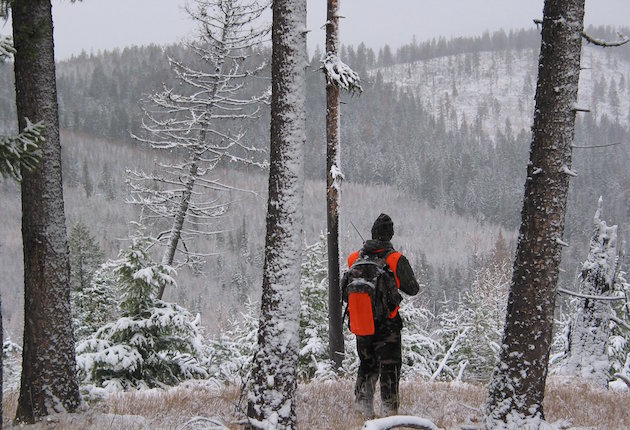I was 7 years old when my father first took me to the deer camp. It was a club called Greggs Lake, a big-woods camp deep in the Adirondack Mountains. During the last ten years that the 20 members and guests hunted out of there, we never killed a buck. The venison that we ate came from the “outside,” as we referred to the land down the 16-mile road outside of the park boundary, known as the Blue Line. The number of deer we saw never mattered.
Perhaps we grew used to not seeing many. Perhaps we were old men who did not care about the killing anymore. What could have been the reason why we kept going back? The answer lies in our relationship to the land.
It may be that this was a natural extension of not having many deer to begin with. Where we hunted, the biologists say there are less than three deer per square mile. The winters are long, harsh, and can appear early in November. There is little good food for the deer to eat. They must travel long distances to gain it, and we must travel the same to find them. Hunting here is pure, by which I mean I must hunt the land before I can make any sort of decision about killing. I must learn the land and how the wind lies upon it.
For one thing, I had to find out how to get home. Many of us in the big woods hold the fear of not finding our way back in our heads like a fret. I get good at my compass around two or three in the afternoon. I pull out a map that I have not looked at all day. Instead of looking ahead for the deer, I look backwards to where I have been. I like to find a piece of land that looks familiar to me. If that piece is immediately obvious, I will stay with the woods until darkness. But often, just when I have begun to pattern a buck that I have been tracking all day or for days, I must pull off to find a way homeward. Because I hunt with others, I have an obligation to them to return and help out with camp—and to find or help them as needed.
One of the great rituals of the deer camp takes place at night after dinner and the camp chores have been attended to. The stoves are filled; there is wood ready to feed them all night long by whoever is up. Water has been gathered to start the coffee tomorrow. The dishes are done. Camp has been picked up and put away, and the hunters begin telling their stories. These start out as the story that each one had that day.
“What did you see?” is the question that you will hear the most. Each of us is expected to tell the others where we have traveled to that day and how it was. Such stories set the stage for each person on their next hunt. Then, over whiskey or beer or euchre—perhaps a fry pan of onions and venison—we begin telling the old stories, the ones we have heard all of our lives with these men. The retelling helps us to recall. Details change. New ones are added. If the camp has children, these stories, like those around campfires ages ago, become part of the process of growing up—of growing old. The stories confirm us. A deer camp preserves the grand tradition of storytelling. Hunting is a craft rich in tradition and lore and memory. It holds our past. Not just a personal past of each hunter or his group, but the past of our species.
For those of us who hunt the land, there are special locations that we visit each fall like a ritual. These only exist because of the past—a past that may have contained deer but is more likely about those who shared the location with us, often a father, an uncle, or a brother. From our camp, it could be anyone we have a respect for who has applied a personal reverence to a locale.
But there are also secret places we go back to alone, to spend time there—as much as we want and in our own way. This could not take place if we were hunting with a group, such as on a deer drive, even if we were doing small drives to a buddy. By returning to these each fall, we complete the circle of restoration of our souls. Once done, we can go on with other hunts, with our lives. We go forward by going back.
In the club that I hunted at for more than 30 years, I found that many of these secret feelings were also shared by other members, but for different reasons. The land has the capacity to make itself “known” to many.
We have taken to the land in the same manner as the deer must. We roam it. We share the same piece of land. Hunting should never be thought of as a singular attack upon the deer. It is far more complex than that. The deer are not passive in their lives around us. They are learning us. They are making adjustments to their living. They show the land to us. And by doing so, they show us ourselves.


“Can’t cheat the mountains, Mister.” Great quote!